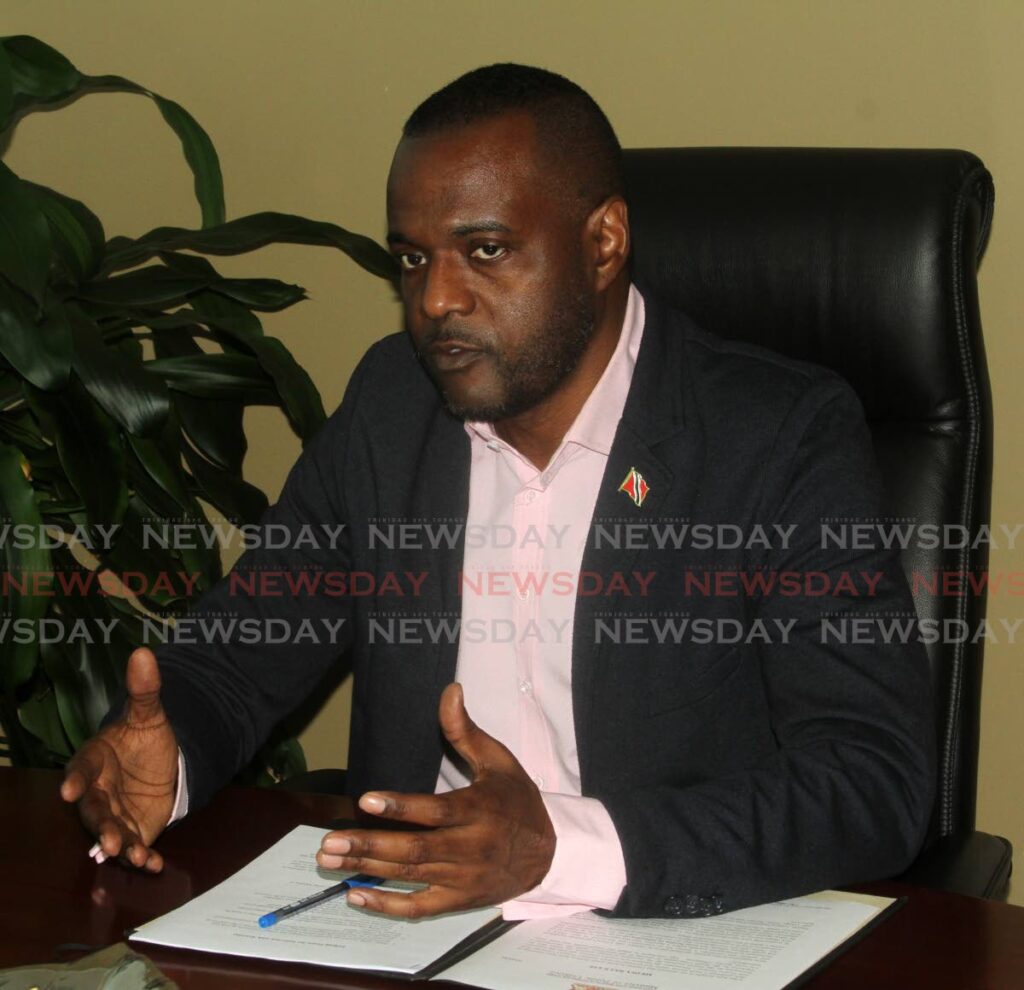Minister: WASA working on plan to produce more water

The government will soon sign a memorandum of understanding with a Canadian company to provide a modular water treatment plant to tap a reservoir in Caparo.
Public Utilities Minister Marvin Gonsalves said this is one of the many initiatives planned under the strategic action plan formulated for the Water and Sewerage Authority (WASA).
At a Conversations with the Prime Minister at the Bon Air West Community Centre on Tuesday, Gonsalves said a transformation plan spearheaded by a sub-committee led by Housing and Urban Development Minister Pennelope Beckles
had been prepared. He said on the basis of that report, he had held a successful meeting with the unions on Monday and was pleased with the result.
He said WASA has not increased its water production capacity over the last 30 years, even though there had been massive residential growth during that time.
“Almost every plant is producing water at 50 per cent below capacity. WASA is not doing anything to produce water-production capacity, even though there are millions of gallons available."
He said booster stations were in disrepair, and WASA was not doing preventative maintenance.
"So even when water is being supplied, it is being lost because of leaks which reduce pressure.
“The Water Resource Agency said the Sangre Grande area has the capacity to produce 18 million gallons of water, the Aripo area 11 million gallons of water, Cascade/St Ann’s ten million gallons, the Maraval bedrocks six million gallons, in Chatham and Pt Fortin, 12 or 15 million gallons – but we haven’t done much to get enough water, to deal with increasing demands, to deal with infrastructure.”
He said the modular water plant, once installed in Sangre Grande, would be able to produce five million gallons by October, and would be specifically built to deal with water quality, based on the parameters in the area. He said the aim was to have ten plants strategically placed across the country, which meant areas would not have to share water from far-away reservoirs.
Gonsalves said the agency would soon approach the Regulated Industries Commission with a justification for a rate increase, which had not occurred in the last 28 years.
“For the first time, WASA has put together a business plan and a capital investment plan. However, for the rate increase to be approved, WASA has to prove it has the ability to supply water.”
Gonsalves said programmes would be implemented in each region to deal with specific regional challenges, according to the strategic action plan.
He said WASA has fixed 6,000 leaks but had a backlog of 3,000, and a team of experienced contractors would be assigned to fix roads as soon as WASA was done fixing leaks.
Technology would begin to be used to deal with some of the persistent issues reported by the public, he said.
“The time of the pumpcock man is coming to an end. No longer will communities be deprived of water because a pumpcock man forgot to turn back on a valve.
"We will be digitising the operation of every single valve in TT, so that we will be informed if one is off in a certain area, and have them automated.
"We will also have 360 data loggers all over the system to tell us when there is a problem within the system, or when pressure is low in an area. We will also be digitising pump stations, so we know when they fail or are experiencing problems, so we can implement backup measures.”
The Prime Minister said he appointed Gonsalves to deal with WASA because he had no connections with the authority. When he was on the board of WASA in the 1990s, he said, there was a culture of “This is how we do it.” and he was told, “The board is temporary but management is permanent.”
Dr Rowley said while both government and unions were concerned about employment levels at WASA, the government was also concerned that it was fit for the purpose for which customers were paying.
Opposition Shadow Minister for Public Utilities MP Barry Padarath said he found Gonsalves' comments about WASA disturbing. In a statement, he called on the minister to give the cost of the modulated water treatment plants and to put the terms and conditions of the MOU in the public domain through a ministerial statement in the Parliament in the immediate future.

Comments
"Minister: WASA working on plan to produce more water"